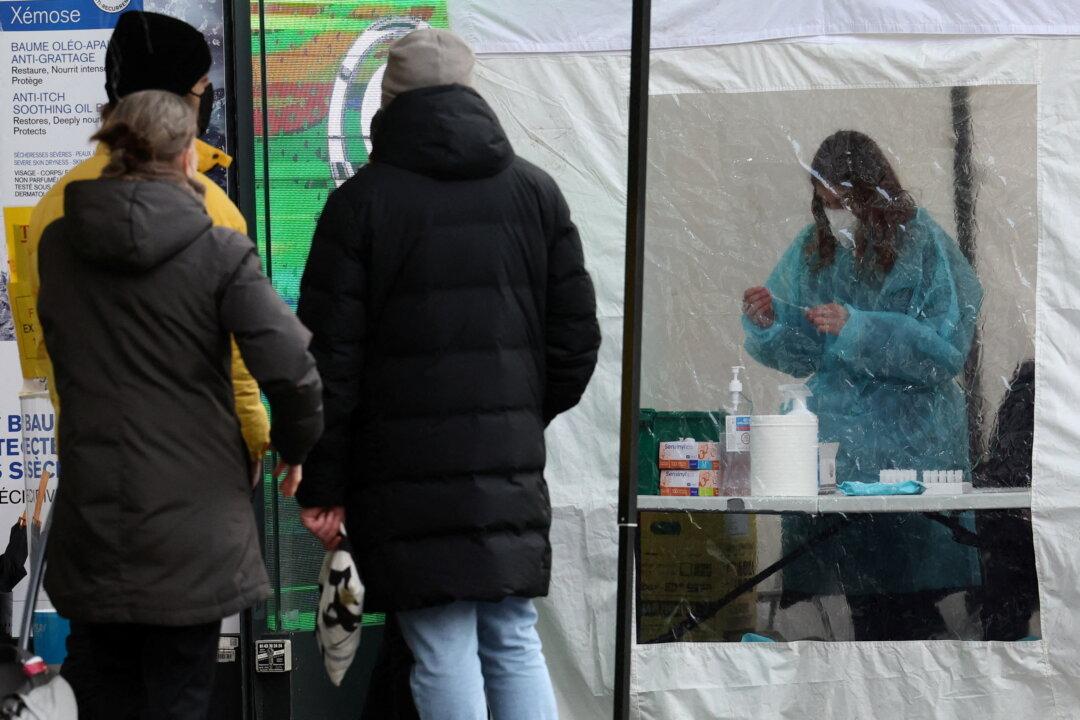MADRID/PRAGUE—The Czech Republic said on Monday it would allow critical workers such as doctors and teachers to go to work after a positive COVID-19 test, the latest European country to ease restrictions to keep services running as cases surge.
As the much more contagious Omicron variant becomes dominant and forces hundreds of thousands to isolate, the pressure is growing on health workers, police, and firefighters, with teachers set to follow as schools resume after the Christmas holidays.





